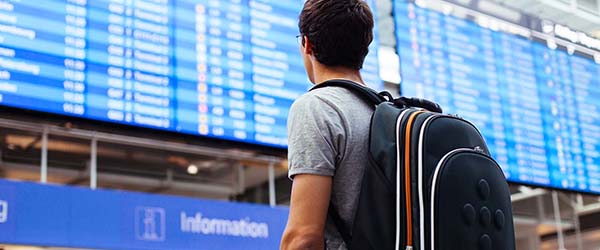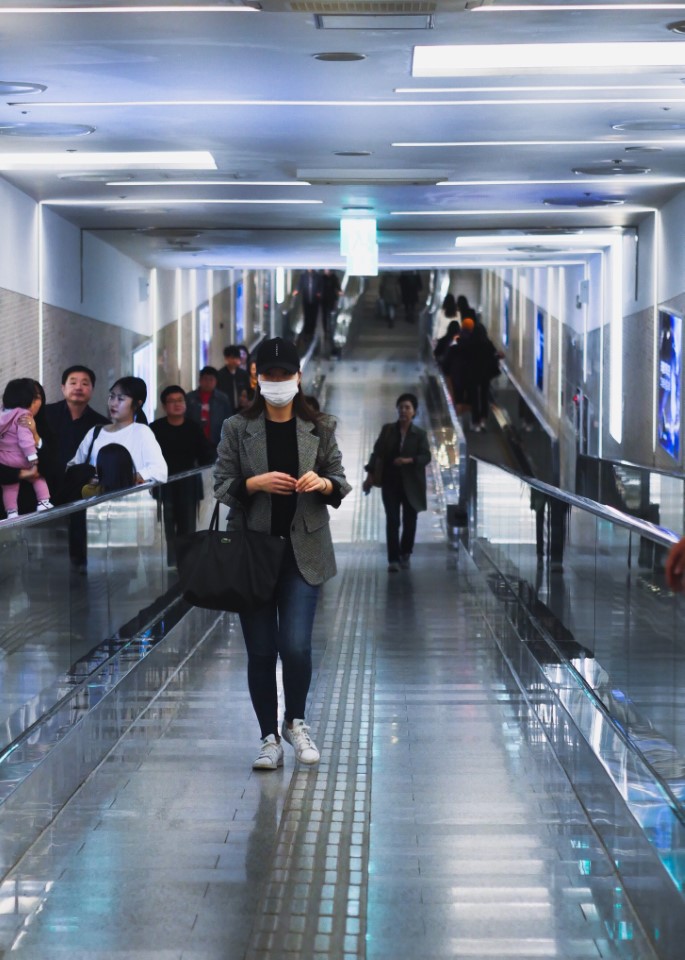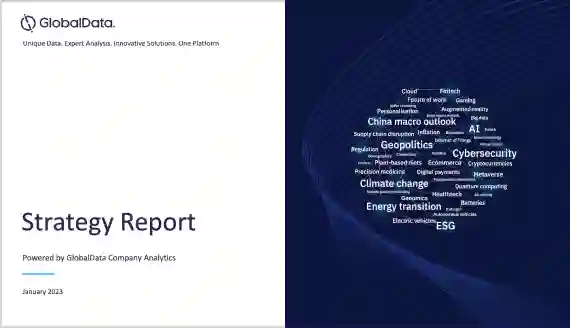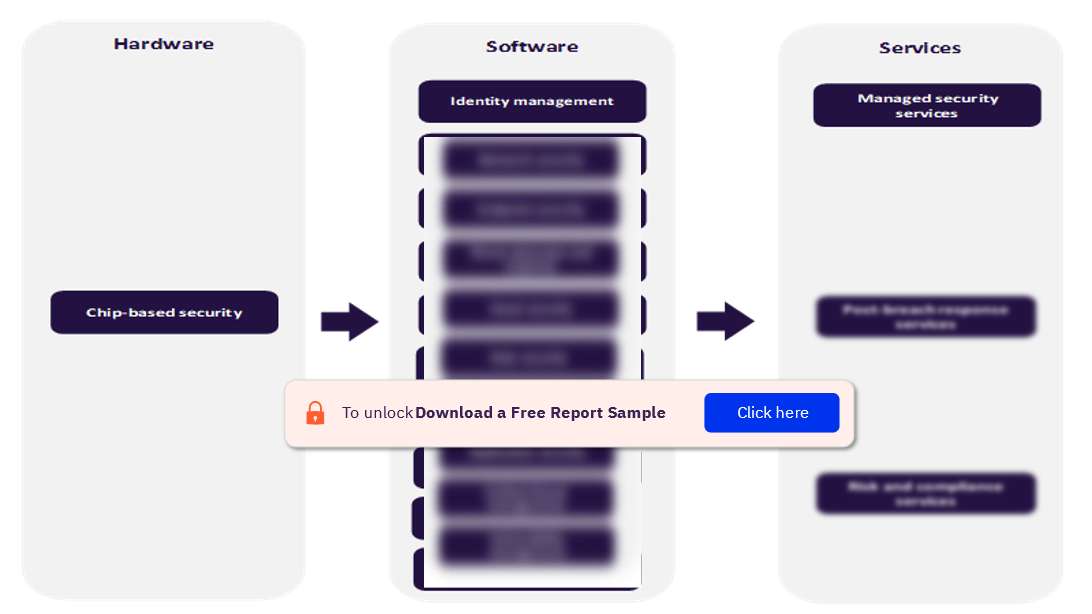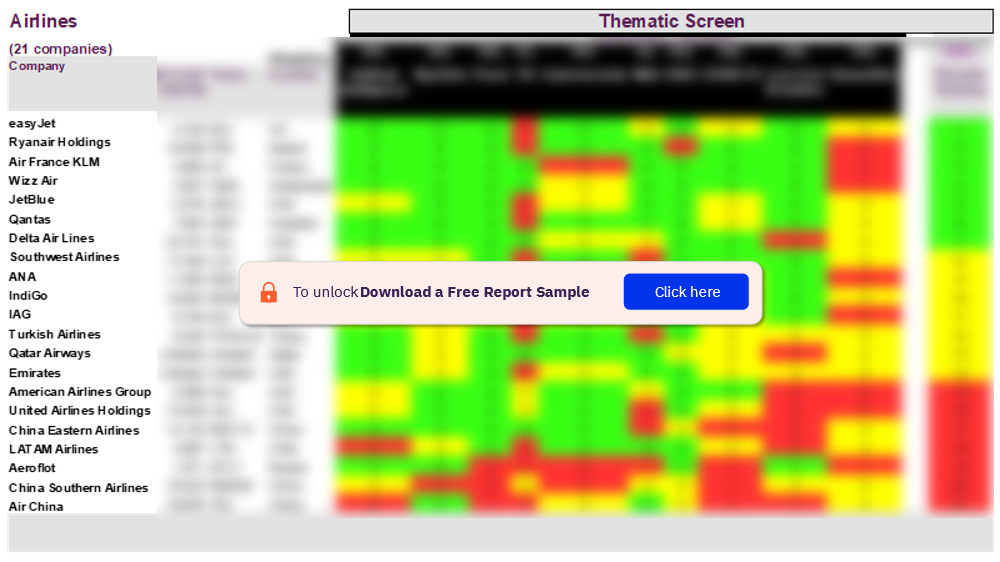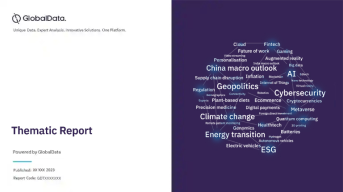Cybersecurity in Travel and Tourism – Thematic Intelligence
Powered by ![]()
All the vital news, analysis, and commentary curated by our industry experts.
Cybersecurity in Travel and Tourism Report Overview
The travel industry holds hugely valuable and sensitive data on every traveler. If these data points are not well protected, there are significant risks for customers. Such breaches can damage a company’s reputation. Cybercriminals exploit the vulnerabilities within a cybersecurity strategy, so a rigorous approach is central to effective risk management. To tackle cyber threats, a company’s cybersecurity strategy must involve contingency planning, outlining immediate actions, post-breach responses, and an understanding of the company’s current cyber risks.
Furthermore, as the digital ecosystems of the travel and tourism companies grow, they become more vulnerable to cyberattacks. Data is most secure when all companies across the travel and tourism value chain invest in all layers of the cybersecurity value chain.
The cybersecurity in travel and tourism thematic report provides an overview of the impact cybersecurity has on the travel sector and seeks to understand some of the contributory factors. The key trends within this theme are split into three categories: technology trends, macroeconomic trends, and regulatory trends. Several case studies are included to analyze the multiple ways countries and companies have responded to the impact of this theme’s growth and what they are doing to grow with this theme.
| Market Size (2021) | $2.1 Billion |
| Forecast Period | 2022-2026 |
| Historic Period | 2019-2021 |
| Key Value Chain Components | Hardware, Software, and Services |
| Leading cybersecurity adopters in travel and tourism | Accor, Air France – KLM, Booking Holdings, Despegar, Hilton, Marriott International, Qatar Airways, and TUI |
| Leading cybersecurity vendors (Public and Private) | Accenture, Alphabet, Check Point Software, Cybereason, ForgeRock, Lookout, Synk, Tanium, OneTrust, and Netskope |
| Specialist cybersecurity vendors in travel and tourism | Ekran System, F-Secure, VigiTrust, ITSEC Group, TitanHQ |
Cybersecurity in Travel and Tourism Market Trends
The main trends shaping the cybersecurity theme over the next 12 to 24 months are classified into technology trends, macroeconomic trends, and regulatory trends.
Technology Trends: Some of the most prominent technologies gaining traction in the cybersecurity in travel and tourism market are ransomware, multi-factor authentication, mobile cybersecurity, cloud security, DevSecOps, supply chain attacks, endpoint protection, zero trust adoption, automotive hacking, and 5G rollout among others.
Macroeconomic Trends: IT budgets, Ukraine conflict, state-sponsored attacks, cybersecurity skills shortage, and critical national infrastructure threats are the key trends impacting the cybersecurity in the travel and tourism market.
Regulatory Trends: Ransomware regulations, EU cybersecurity legislation, mandatory disclosure of cyberattacks, and co-operation on supply chain security are the prominent regulatory trends influencing the cybersecurity in travel and tourism market.
For more cybersecurity in travel and tourism market trends, download a free sample report
Cybersecurity in Travel and Tourism Industry Analysis
The cybersecurity market size in the travel and tourism industry was valued at $2.1 billion in 2021. The market is expected to grow significantly in the coming years with all three components of the cybersecurity value chain growing at positive CAGR.
The cybersecurity in travel and tourism industry analysis also comprises –
- Timeline
- Signals
- M&A trends
- Patent trends
- Company filing trends
- Hiring trends
- Social media trends
For more information on the cybersecurity in travel and tourism industry analysis, download a free sample report
Cybersecurity in Travel and Tourism Value Chain Insights
The cybersecurity value chain consists of three main areas: hardware, software, and services.
Cybersecurity Hardware: With chips now being used in mission-critical servers and safety-critical applications, protecting chips from cyberattacks is becoming more critical and more expensive. Systems vendors such as Apple and Amazon are increasingly designing their own chips rather than buying commercially developed devices and intellectual property (IP) created by third-party developers. These vendors are developing their own ecosystems and requirements; security is a key concern.
Cybersecurity in Travel and Tourism Value Chain Analysis
For more value chain insights on the cybersecurity in travel and tourism market, download a free sample report
Cybersecurity in Travel and Tourism Industry – Competitive Landscape
The report highlights the key companies involved in the cybersecurity in travel and tourism market as –
Leading cybersecurity adopters in travel and tourism: Accor, Air France – KLM, Booking Holdings, Despegar, Hilton, Marriott International, and Qatar Airways are some of the leading cybersecurity adopters in the travel and tourism sector.
Leading cybersecurity vendors: Accenture, Alphabet, Check Point Software, Cloudflare, Darktrace, CrowdStrike, IBM, Fortinet, Rapid7, Splunk, Tenable, and Zscaler are some of the leading cybersecurity vendors.
Specialist cybersecurity vendors in travel and tourism: Ekran System, F-Secure, VigiTrust, TitanHQ, ITSEC Group are the key cybersecurity vendors in the travel and tourism industry.
For more information on the cybersecurity in travel and tourism industry, download a free sample report
Cybersecurity in Travel and Tourism Industry Scorecard
The three screens in the industry scorecard comprise of –
Thematic Screen: The thematic screen ranks companies based on overall leadership in the 10 themes that matter most to their industry, generating a leading indicator of future performance.
Valuation Screen: The valuation screen ranks our universe of companies within a sector based on selected valuation metrics.
Risk Screen: The risk screen ranks companies within a particular sector based on overall investment risk.
Airlines Sector Scorecard Analysis
For additional insights on the airlines sector scorecard analysis, download a free sample report
Scope
This thematic report provides an overview of the impact cybersecurity has on the travel sector and seeks to understand some of the contributory factors.
The key trends within this theme are split into three categories: technology trends, macroeconomic trends, and regulatory trends.
Several case studies are included to analyze the multiple ways countries and companies have responded to the impact of this theme’s growth and what they are doing to grow with this theme.
Key Highlights
The travel and tourism sector is one of the most susceptible to cyberattacks, ranking third in incidents according to the Trustwave 2020 Global Security Report. With attacks becoming more common and increasingly sophisticated, the risk and impact of cyber-ignorance are escalating. The different layers of the travel and tourism value chain handle vast amounts of personal data and involve numerous individuals susceptible to human error, interacting with millions of customers in cyberspace. Therefore, given the growing sophistication of attacks, simply thoroughly investigating cybersecurity strategies in the aftermath of a cyberattack or focusing on meeting compliance obligations will not suffice, it will only lead to an endless cycle of spending.
Cybersecurity should involve contingency planning, outlining the immediate actions and post-breach responses a company should take if a cyberattack occurs, and understanding a company’s current level of cyber risk. Although these services are typically outsourced, companies should still invest in these services by creating strong partnerships with service providers to stay on top of vulnerabilities and ensure compliance requirements are met. This is especially important due to the volume of sensitive data these companies handle, especially direct suppliers. Managed security services, risk and compliance services, and post-breach responses will limit attacks and help companies respond effectively to retrieve personal data, minimizing damage to consumers. This is important as the industry has experienced a string of high-profile cyberattacks which have caused significant reputational damage. Changing travel restrictions because of COVID-19 has made a seamless booking experience increasingly expected. These are often facilitated by OTAs, allowing for changing travel arrangements and ease when booking online. Online travel booking is accelerating and is an attractive area for cybercriminals. As booking becomes more digitalized and more personal data is shared online, the exposure to security threats increases. Mobile travel apps are also common platforms for OTAs, but they have become popular endpoint targets among threat actors.
Reasons to Buy
- Understand the current cybersecurity trends within the travel landscape today and how these will escalate in the near future.
- Assess how travel and tourism companies such as tour operators, OTAs and DMOs are utilizing cybersecurity to drive revenues.
- Acknowledge the necessity of using cybersecurity by understanding the social, cultural, and environmental effects on the destination.
- Discover recommendations for businesses involved in cybersecurity
- GlobalData’s thematic research ecosystem is a single, integrated global research platform that provides an easy-to-use framework for tracking all themes across all companies in all sectors. It has a proven track record of identifying the important themes early, enabling companies to make the right investments ahead of the competition, and secure that all-important competitive advantage.
- All across the travel and tourism supply chain, now have an opportunity to capitalize on cybersecurity, and there are notable examples of this. Therefore, all should buy this report to fully understand how this theme will continue to be a key theme in the future travel landscape.
Code42
ForgeRock
Illumio
LogRhythm
Lookout
Netskope
OneTrust
Socure
Snyk
Tanium
Accenture
Alphabet
Check point Software
Cisco
Cloudflare
Crowdstrike
Darktrace
Dell Technologies
Fortinet
IBM
Microsoft
Palantir Technologies
Palo Alto Networks
Rapid7
Splunk
Tenable
Trellix
Zscaler
Ekran System
F-Secure
VigiTrust
ITSEC Group
TitanHQ
Airbnb
Booking Holdings
Despegar.com Corp
easyJet
Expedia Group
Hilton
Hyatt
Lastminute.com
MakeMyTrip
Marriott International
TUI
Uber
MTR Corp
Central Japan Railway Company
East Japan Railway Company
Lyft
TripIt
Table of Contents
Frequently asked questions
-
What was the cybersecurity market size in the travel and tourism industry in 2021?
The cybersecurity market size was $2.1 Billion in 2021.
-
What are the key cybersecurity in travel and tourism industry trends?
The key cybersecurity in travel and tourism industry trends are technology, economy, and macroeconomic trends.
-
What are the main value chain components in the cybersecurity in travel and tourism industry?
The main value chain components in the cybersecurity in travel and tourism industry are hardware, software, and services.
-
Who are the leading cybersecurity adopters in the travel and tourism industry?
Accor, Air France – KLM, Booking Holdings, Despegar, Hilton, Marriott International, and Qatar Airways are some of the leading cybersecurity adopters in the travel and tourism sector.
-
Who are the leading cybersecurity vendors in the travel and tourism industry?
Accenture, Alphabet, Check Point Software, Cloudflare, Darktrace, CrowdStrike, IBM, Fortinet, Rapid7, Splunk, Tenable, and Zscaler are some of the leading cybersecurity vendors.
-
Who are the leading specialist players in the cybersecurity in travel and tourism industry?
Ekran System, F-Secure, VigiTrust, TitanHQ, ITSEC Group are the key cybersecurity vendors in the travel and tourism industry.
Get in touch to find out about multi-purchase discounts
reportstore@globaldata.com
Tel +44 20 7947 2745
Every customer’s requirement is unique. With over 220,000 construction projects tracked, we can create a tailored dataset for you based on the types of projects you are looking for. Please get in touch with your specific requirements and we can send you a quote.
Related reports
View more Travel and Tourism reports
